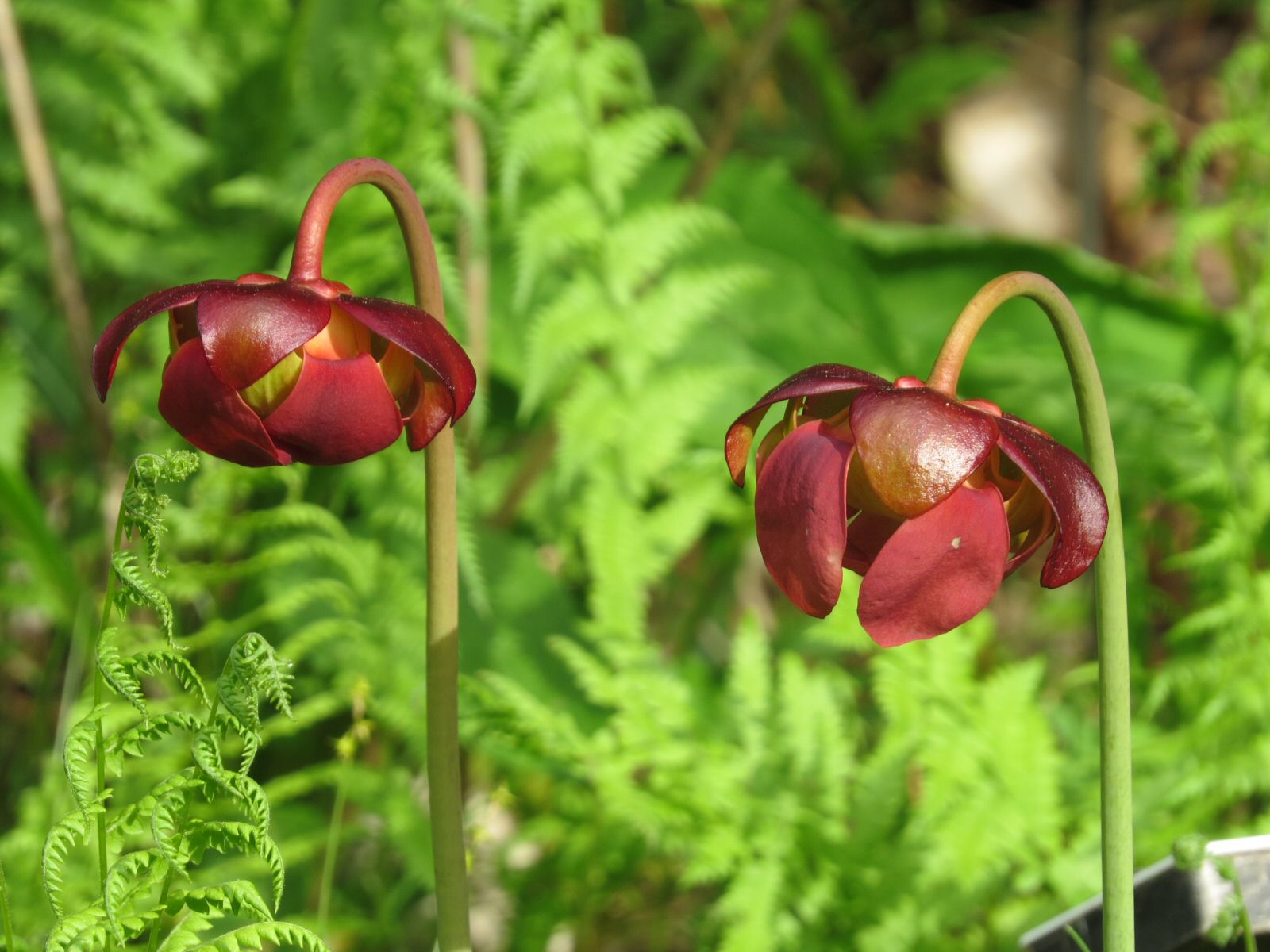
Pitcher Plant
Notes and Changes since last report
- It was 64°F, mostly cloudy and calm at 3:15 PM on June 2, 2020.
- This week's trail report covers the Cary Pines Trail side of the trail system.
- The weather was undecided today and so was I. At the last minute I went.
- But it was good weather for good looks at a couple easy to confuse butterflies: Hobomok and zabulon skippers.
The Trails
- Out on the Cary Pines Trail near trail marker 12, maple-leaved viburnum looked ready to pop, but it may take another week or so.
- The Norway Spruce Glade is where the trail comes out above the Fern Glen. It gets mentioned in passing, but not often by name.
- It is a reliable place to find zabulon skipper. Note the clear orange patch on the hindwing. The hindwings are held out flat with the forewings at 45° above.
- A more standard viewing angle gives a good look at one fore- and one hindwing, here of a hobomok skipper. Note the black veins in the hindwing orange patch.
- Feeding or too much sun will cause closed wings. The hobomok skipper's yellow patch on the hindwing below is sometimes described as an airplane.
- That of the zabulon skipper is much larger making the HW yellow patch the easiest feature to separate the two species. But females are a different story all together...
- Look for these skippers on the dewberry when it comes out in the spring.
- Other things flying here today were little wood-satyr and pearl crescent.
- Another specialty of this little area is penstemon.
- These snapdragon species are also called beardtongue for the hairy lower petal.
- Inside the Fern Glen, herb-Robert was everywhere. This little geranium is usually pink but frequently occurs in white.
- Tucked off the high side of the limestone cobble was the patch of vancouveria.
- Also known as northern inside-out flower, it hales from the Pacific coast.
- At the far end of the cobble, alternate-leaved dogwood wasn't looking too happy. Perhaps the cold snap a few weeks ago affected the buds.
- Farther along towards the fen, red baneberry was done flowering and already forming fruit.
- A favorite in the fen, pitcherplant looked as if it were from another planet.
- Farther towards the back of the Glen, Virginia waterleaf had been expanding its colony, only a couple years old.
- There was a weedy looking patch off that little connecting trail.
- A close look was needed to appreciate the tiny flower of water speedwell.
- Along the drier path heading towards the kiosk was a cluster of sanicle. I like that name - too many other things are called snakeroot.
- The swamp azalea was still blooming and one could smell it from a distance.
- Just past it, bracken was as tall as a person. It's not easy to see in the photo, but find this spot on the trail.
- Along the front of the pond were a lot of flat blades.
- Some of them were sweetflag, but one had to look for them.
- At the little beach, blue flowers were easy to spot.
- Greater blue flag was easy to figure out - especially with the label right there.
- Poor carrion flower vines had fallen over.
- They were still blooming anyway.
- In another corner, our tiniest lily, Indian cucumber root was blooming.
- At the railing along the road, sassafras was displaying each of its three leaf shapes.
- After leading through the Old Gravel Pit, the trail came out of the woods to a view of Gifford House across the Little Bluestem Meadow.
- The trail first turned left to join the Scots Pine Allée.
- Behind the Carriage House, a few blooms on the rhododendron were looking real nice.
- A little farther along, beauty bush was not very full this year, but what was there was worth the pause.
- Next week: The Wappinger Creek Trail side of the trail system.
Sightings
Birds
| Butterflies
Plants
|
